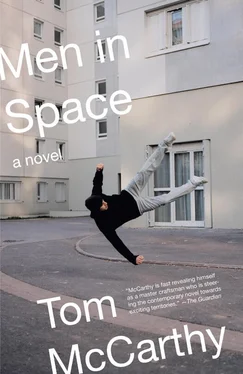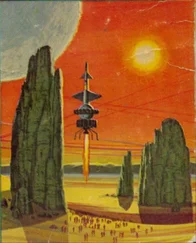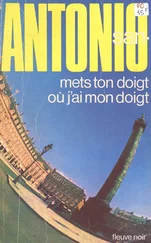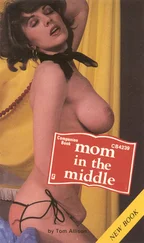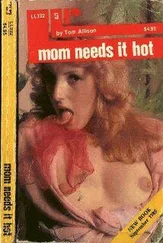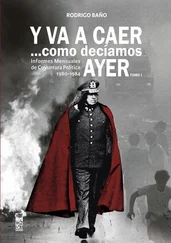It’s taken three quarters of an hour from Nieuwmarkt: the longest bike ride Nick’s done so far in this city. This is ring-road territory, all car showrooms and petrol stations and stilted overpasses. Get to Anthony Fokkerweg and you’re there, Sasha told him.
“Fokker? Like the …”
“Yes, Fokker, who has make those aeroplanes for Nazis. Dutch hero.”
Nick’s on Anthony Fokkerweg now; he’s already passed the Rietveld, but there’s no sign of Windtunnelkade. He’s stopped in front of a 1950s building made of concrete bricks and panels fronted with those white ceramic tiles you get in swimming pools. Through the glass door he can see a lobby in which a uniform is wallowing behind a desk; he’ll go in and ask. No need to lock the bike up here: he’ll lean it on the steps. In solid, big blue letters on the wall above the entrance are the words: Nationaal Lucht- en Ruimtevaart Laboratorium. Vaart is voyage, like Fahrt in German; Lucht must be air, like Luft , and Ruimte, Ruimte … The metal door handle is cast into a logo which depicts, around the letters NLR, a circle whose bottom turns into an aeroplane and from the top of which a rocket shoots off into space. Of course: space travel. Ruimte , space, like Raum, Raumfahrt . It’s the National Laboratory of Air and Space Travel: that’s what Han meant by “space station” …
The lobby’s tall; it has walkways round the top that lead off into hangar-like halls with factory piping hanging from the ceiling and those black-and-yellow radiation warning signs you get in James Bond movies dotted round the walls. Men in overalls are walking about carrying lathes. Their overalls are worn and oily, not Teflony and shiny like you’d think space-centre clothes would be. Nick wonders what they use the lathes for: to twist and hammer rocket parts together? Do they stick cameras to their outsides using Heidi’s father’s glue? Since when has Holland had a space programme, in any case? This place looks more like some old tool factory, but there’s the plane and rocket logo again on the jacket of the uniform Nick’s walking up to …
The man tells him to go left and left and left again. The first left takes him from Anthony Fokkerweg to Fokkerstraat, the next onto Luchtvaartstraat. Then there’s a Propellenstraat, which he turns down, but then doubles back out of because it should be Windtunnelkade but isn’t: the man must have forgotten this one. Propellen : this really is aviation city. Did Kiefer’s aeroplane have propellers? Nick can’t remember. Just past Propellenstraat there’s a dance school: he can see an old lady leading three rows of dancers through a set of movements, men and women dressed in shorts and leotards and leg warmers just like the kids from Fame , all moving in sync in front of a giant mirror. They’re stepping very slowly forwards across the floor, hoisting their feet right up, pointing the toes out and then guiding them back down as their hands reach out and pull the air back as though it were a liquid denser than water. Their right shoulders dip and they slowly spin round, then start the sequence again. They look like astronauts space-walking — with the mirror, six rows of astronauts and two elderly mission commanders approaching one another with great trepidation, advancing from both sides towards the black hole of the mirror’s surface, the flatness into which, eventually, they’ll all be swallowed up and disappear. There’s a sign above the window that says Christine Chattel Dance Studio . Is the woman in front of the class Christine Chattel? Maybe Christine Chattel’s long gone, part of the same age as Anthony Fokker and aeroplanes that had propellers and big blue solid lettering on buildings. Past the school, finally, is Windtunnelkade. It’s on a canal: facing some dilapidated moored boats is a row of one-storey workshops.
Han’s is number 6. The windows are blacked out by cardboard, round the edges of which red light seeps. Bumpings and murmurings are coming from inside, sounds of things being carried and set down — plus this kind of whining, a repetitive electrical noise like windscreen wipers make. Nick raps on the door and a boy of maybe eighteen answers. He says something in Dutch. Nick tells him, in English:
“I have a meeting here with Han.”
“He’s in the back room.” That rising intonation again. Nick steps in off the street. It’s a long rectangular space cluttered with tins of ink and stacks of paper and thin metallic plates. On the walls, wooden shelves covered in bottles of white spirit, jars of emulsion, battered tubes that ooze some kind of resin. There are photos scattered all across the floor and pegged up to dry above a sink from beside which a red bulb is effusing all this crimson light which coats the whole room. In the middle of the floor is the room’s centrepiece: a huge printing press. It’s this that’s making the electric whining noise, pulling at large sheets of white paper which are stacked up on a tray at one end, swallowing them, then squeezing them out onto a kind of footrest at the far end, face down. There are three or four more boys in this room, all about the same age as the one who opened the door to Nick; they move around carrying filters, guillotines and light boxes, or handing more stacks of white paper forwards to another boy who’s squatting down beside the printing press, reloading it. At the far end of the room’s a door. Nick walks through it into a smaller office.
Han turns out to be in his mid-forties. He has grey hair, a wrinkled but handsome face and pince-nez glasses. He’s sitting at a desk with a computer when Nick comes in; he gets up and shakes his hand.
“You’re Nick, I think.”
“Yes. I’m pleased to … That’s Gábina!”
“Sorry?”
“That photo, there: she’s a …” There she is: right on the desktop, on the cover of a magazine, with a blue-white-and-red dress and scarf on, holding a large pretend passport and a smaller copy of the same magazine on which the same photo, of her holding the magazine again, is reproduced, and so on inwards, infinite regress. Chopsticks. Nick’s seen her wearing these clothes, in person, on New Year’s Eve in Pod Stalinem: the Lift Off party. Maňásek’s friend Sláva, plus Michael the American who took a shine to Roger and had offered him a job last time Nick heard, were doing the shoot. The magazine’s called Paris/Praha . Beside Gábina’s head white letters announce Nova Praha/Prague Nouvelle . Han’s looking perplexed.
“I know her! This girl on the cover: she’s a friend!”
“This magazine? So! A fine coincidence. The issue is about Prague. This is why I bought it, because Joost was there. You want some genever?”
“Well … sure.” Nick hates the stuff but doesn’t want to seem rude. Han opens up a cabinet in the office’s corner and takes a bottle and two glasses out. The photo shoot must have been taking place right as Maňásek died. Perhaps this photo was taken just minutes before, or minutes or even seconds after, or even at the precise moment when he hit the pavement. František, his mother said to him — to him and, of course, Joost: as though death operated by association …
“I’m very sorry to hear about Joost.”
Han passes a glass of genever to him, then:
“He liked you. He wrote about a white bar …”
“Yes — by this girl’s house.”
“This girl again?” Han picks the magazine up off his desk and scrutinizes the grainy image.
“We were there together,” Nick says, “the three of us.”
“With the piano and …”
“The piano, the white piano, yes. Joost described all this?”
“He was writing often to me. I feel I know Prague well, the people he met there. We should … drink mud to his eye? Is that what …” He’s holding up his glass.
Читать дальше
